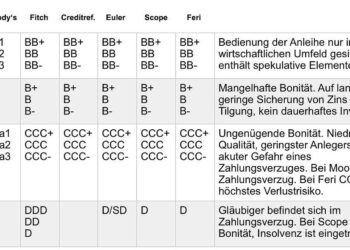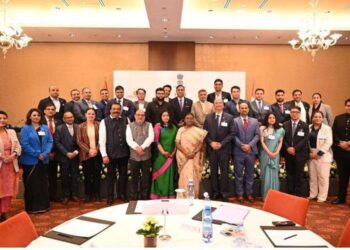Slovakia Introduces Controversial NGO Legislation Echoing Russian Models
In a significant move that has raised concerns among human rights advocates and civil society supporters, Slovakia has enacted a law that closely mirrors regulations seen in Russia, specifically aimed at non-governmental organizations (NGOs).Critics argue that this legislation threatens essential democratic principles and freedom of expression by imposing strict controls on the funding and operations of NGOs—particularly those dependent on international assistance. The law has sparked widespread debate within Slovakia and beyond, highlighting a broader trend in Eastern Europe where governments are increasingly scrutinizing civil society’s role in governance. Observers worry that such measures could stifle the independent voices of NGOs, which play an essential role in fostering social justice and accountability. As Slovakia stands at a crucial crossroads between civic engagement and governmental oversight,the consequences of this law could considerably affect its democratic landscape.
Slovakia Introduces Contentious NGO Regulations
The Slovak government’s recent implementation of stringent regulations governing non-governmental organizations (NGOs) has provoked ample criticism. This new legislation requires NGOs to disclose their funding sources while subjecting them to increased scrutiny regarding their activities. Proponents argue these measures are intended to enhance clarity and reduce foreign influence; though, opponents perceive it as a blatant assault on civil society aimed at quelling dissenting voices. Critics have expressed fears that these regulations may foster an habitat unfriendly to independent organizations, undermining their ability to operate effectively within Slovakia.
This legislative initiative has raised alarms among various international bodies and human rights organizations concerned about its potential impact on democratic processes in Slovakia. Reports indicate that NGOs focused on human rights advocacy, environmental protection, and social equity are particularly vulnerable under this new legal framework. Key elements of the law include:
- Mandatory disclosure of foreign financial contributions.
- Increased government oversight over operational practices.
- Punitive actions for non-compliance including fines or possible dissolution.
| Aspect | Description |
|---|---|
| Funding Disclosure | Ngos must publicly declare all sources of foreign funding. |
| Government Oversight | A rise in audits assessing NGO activities is mandated. |
| Punishments | Ngos face fines or closure if they fail compliance with regulations. |
Impact of Russian-Inspired Legislation on Civil Society and Democratic Values
The recent adoption of laws in Slovakia reflecting Russian legal frameworks poses significant challenges for the structure and functionality of civil society. Many NGOs rely heavily on international funding sources; thus, this legislation restricts their operations while potentially silencing critical public discourse. The implications extend beyond financial limitations; it fosters an atmosphere filled with fear where self-censorship becomes common as organizations navigate stringent regulatory environments designed to control their influence over democratic processes.Key areas affected include:
- Diminished transparency: Organizations may be compelled to disclose sensitive facts about funding sources.
- Sidelining dissent: Groups opposing government policies might face intensified scrutiny along with potential legal repercussions.
- Civic engagement decline:Citizens may hesitate from participating in initiatives led by NGOs due fear retaliation or backlash from authorities.
Moreover,the erosionof democratic principles is evident as state powers expand under pretexts related tonational security regulationand monitoringofcivil societyactivities.The future holds complex dynamics between nurturing vibrant civic spacesand maintaining governmental authority.A brief overview illustrates chilling effects observed globally due similar laws:
Strategies for Defending Civic Freedoms in Slovakia
To effectively safeguard civic freedoms within Slovakia stakeholders should prioritize protecting independent NGOs vital for upholding democratic values.Reinstating protective legislative measures remains crucial alongside establishing clearer guidelines preventing disproportionate restrictions imposed upon NGO operations.Specific strategies include:
- Enhancing Transparency: Implement clear protocols ensuring both government accountability regarding fund allocation while simplifying reporting requirements placed uponNGOs eliminating ambiguous definitions leading arbitrary enforcement .
- Strengthening Legal Definitions: Clearly articulate terms associatedwith “foreign influence”to prevent misuse against local entities ensuring fair operational conditions .
- Promoting Dialogue: Encourage constructive conversations between officials & representatives fromcivil societies collaboratively addressing concerns whilst respecting fundamental freedoms .
Additionally ,creating supportive environments conduciveforcivilsocietyis essentialin resisting authoritarian tendencies through targeted initiatives suchas :
| Initiative | ImpactConclusion |
|---|













